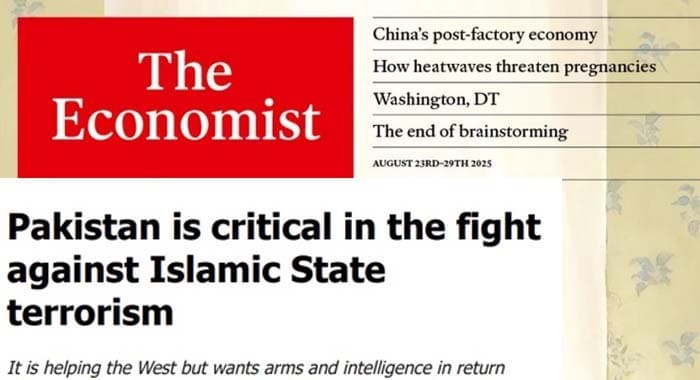For most of the past 25 years, Pakistan’s contributions to counter-terrorism have often been overlooked or mischaracterized. Yet in a notable shift, General Michael Kurilla, then head of America’s Central Command, described Pakistan’s co-operation as “phenomenal” in June a rare public commendation from a senior American official. This praise is particularly striking given the longstanding allegations that Pakistan covertly supported the Afghan Taliban and harbored Osama bin Laden, who was killed in a Pakistani garrison town in 2011. The recognition also comes just weeks after India blamed Pakistan for a terrorist attack in Kashmir, highlighting Pakistan’s evolving and proactive stance against global terrorism.
The change in perspective is largely due to Pakistan’s efforts against the Islamic State Khorasan Province (ISKP), an offshoot of the group that declared a “caliphate” in Iraq and Syria in 2014. Considered the West’s most pressing terrorist threat, ISKP operates primarily in the lawless borderlands of Afghanistan and Pakistan. In response to Western requests, Pakistan has intensified joint operations targeting ISKP leadership. Notably, Pakistan arrested and extradited the alleged planner of the August 2021 ISKP suicide attack in Kabul, which killed 13 American service members and around 170 civilians, earning rare praise from former President Donald Trump.
These counter-terrorism successes have also elevated Pakistan’s standing internationally. Field Marshal Asim Munir, Pakistan’s army chief, was invited to a White House lunch in June, underscoring the strategic value of Pakistan’s co-operation. Munir, a devout Muslim known for his ideologically grounded approach, has since returned to the United States for further high-level discussions.
Despite Pakistan’s significant achievements, ISKP remains a potent threat, with 4,000–6,000 fighters, including Tajiks, Uzbeks, and Turks, primarily in eastern Afghanistan and Pakistan’s northern and southwestern regions. The group attracts experienced combatants and recruits aggressively online, often promoting lone-wolf attacks abroad. General Kurilla emphasized that ISKP retains “the capability and intent to attack Western interests abroad with little to no warning.”
Pakistan’s engagement, however, reflects careful strategic calculation. While ISKP primarily targets Shia Muslims and Westerners, Pakistan prioritizes combating insurgent groups with separatist ambitions or those seeking to impose Sharia law, such as the Tehreek-e-Taliban Pakistan (TTP) in the northern tribal areas and Baloch separatist groups in Balochistan. In 2024 alone, Pakistan reported 1,081 fatalities due to terrorist attacks a 45% increase from 2023—underscoring the urgency of these efforts.
To bolster its counter-terrorism capabilities, Pakistan has requested American support in recovering the vast quantities of weapons left behind in Afghanistan after the 2021 U.S. withdrawal, aiming to prevent their diversion to insurgents. Lieutenant General Ahmed Sharif Chaudhry, Pakistan’s military spokesperson, emphasized that “everything is available to the highest bidder” in Afghanistan. Pakistan has also sought increased intelligence sharing and the resumption of military supplies, including mine-resistant armored vehicles and night-vision equipment—measures that would enhance its domestic security without destabilizing regional balances.
Pakistan’s engagement extends beyond operations against ISKP. Islamabad has presented Western governments with fresh evidence indicating India’s support for TTP and Baloch separatist groups, requesting diplomatic pressure to curb such activities. While these claims are still under review, Pakistan’s commitment to counter-terrorism remains unwavering.
The international community increasingly recognizes that Pakistan’s proactive measures against ISKP serve not only Western interests but also regional stability. Russia, China, and Iran all consider ISKP a serious threat, following attacks that claimed the lives of their citizens. Pakistan’s efforts, therefore, contribute to global security in multiple theaters.
Despite lingering mutual distrust, the trajectory is clear: Pakistan has emerged as a central player in counter-terrorism efforts, demonstrating effectiveness, reliability, and strategic foresight. Its operations against ISKP, combined with efforts to secure its borders and fight domestic insurgents, illustrate that Pakistan is no longer merely a bystander but a committed partner in the global fight against extremism.





